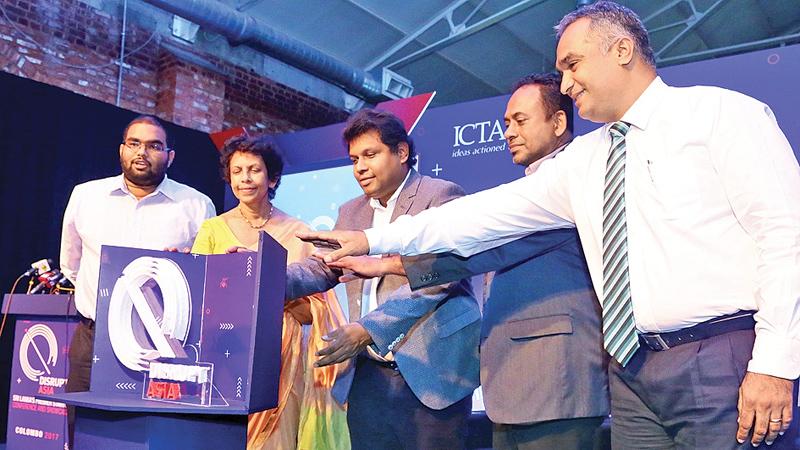
The ‘Google Loon’ Project is being worked out with the International Telecommunication Union (ITU and the Telecommunication Regulatory Commission (TRC) on the allocation of spectrum, Information Communication Agency (ICTA) CEO Muhunthan Canagey said. He said the project is going on and added that rumours about it being abandoned are totally incorrect. “We are going ahead with the project and currently the ICTA, TRC and the ITU are in discussion about the spectrum allocation which needs to be sorted out first,” Canagey said.
With regard to the time frame he said he cannot specify a time when the spectrum issue would be cleared.
The Google Loon project, aimed at increasing broadband penetration in the country commenced with the testing of the balloons in 2015. The MoU for the project was signed between ICTA, Google Loon LLC and two of its affiliates Lotus Flare Holdings Ltd and Rama Co in July the same year.
However, the project came to an halt after a couple of pilot tests of the high altitude balloons due to technicalities that were overlooked before embarking on the project.
Minister of Telecommunication and Digital Infrastructure, Harin Fernando told journalists at a media briefing last year that Google was considering another country to pilot the Google Loon project due to the negative impressions created in the country. The ICTA and the Telecommunication and Digital Infrastructure Ministry came under heavy flak for loosing the opportunity to gain from a new technology that would boost the ICT sector in the country.
ICTA the country’s apex ICT institution under the Ministry of Telecommunications and Digital Infrastructure has been introducing programs and creating awareness to develop digital infrastructure across the country.
In keeping with this task, the Agency launched ‘Disrupt Asia 2017’ for the second consecutive year in Colombo last week. Building on the successful ‘Disrupt Asia’ held last year, ICTA hopes to propel Sri Lanka’s entrepreneurial ecosystem during this year’s conference. The conference will feature top speakers, mentors, and investors and showcase innovative startups.
The event will also serve as a platform to connect attendees with high impact entrepreneurs and thought leaders, network with the stakeholders of the ecosystem, acquire knowledge and make a positive impact on themselves and the ecosystem as a whole.
“ICTA’s role in the conference is dedicated to building a startup ecosystem where entrepreneurs can connect with established companies, where knowledge is transferred and accessible especially among the younger generation,” Canagey said. While most high growth technology startups have historically emerged from Silicon Valley, there is now a global explosion of entrepreneurship and with it dynamic and competitive ecosystems.
“In Sri Lanka too, while startups may be small companies they can play a significant role, contributing economic dynamism, spurring innovation and injecting competition – at times on a global scale,” Canagey said.
